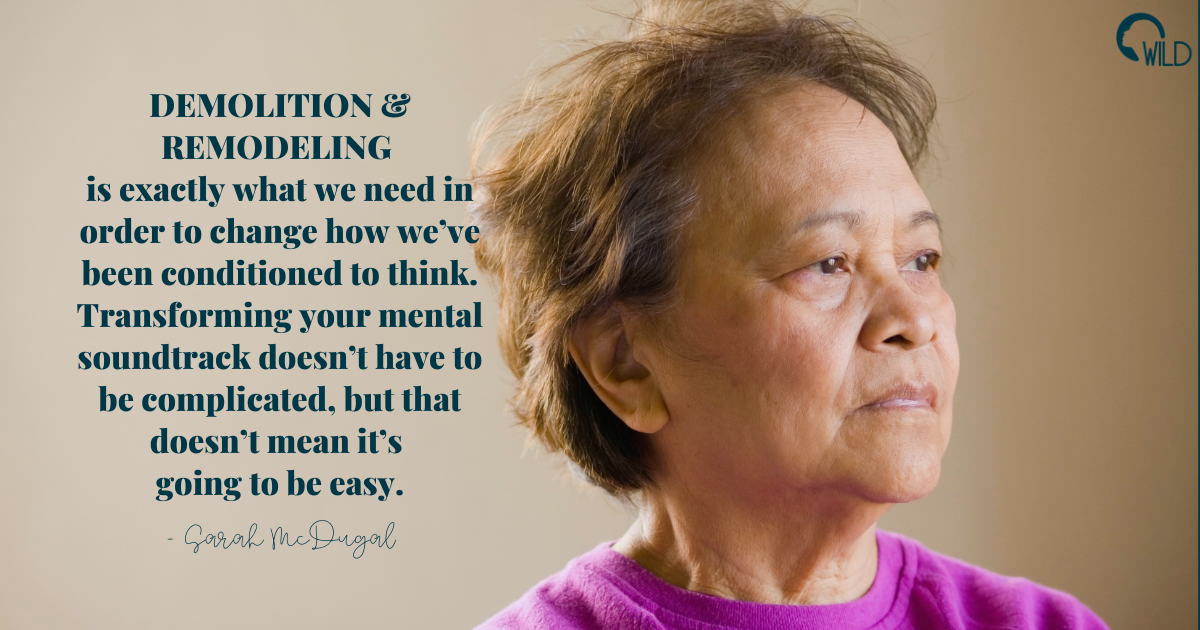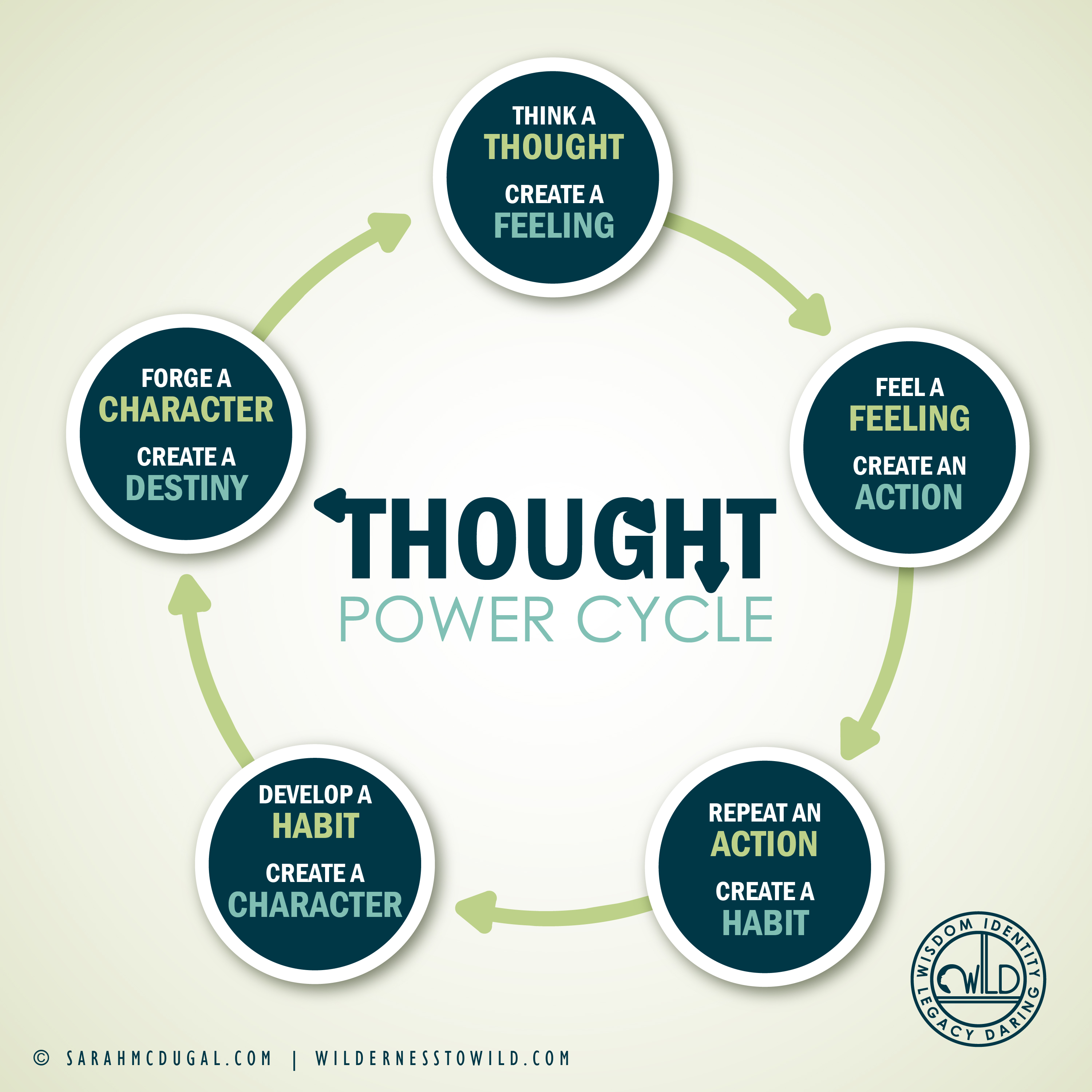Never miss a post.
4 Steps to Shed False Guilt When You're Spiraling: Understanding the Power of Your Brain
- Sarah McDugal
- Healing
My kids like science. A lot. They also struggle with some feelings of extreme perfectionism (pretty typical for gifted autistics, much less trauma survivors), and when they make a mistake, they’re super hard on themselves.
Kinda like some adults I know...
So one day when my then-eight-year-old son started complaining loudly to himself about himself in a very negative way, I decided it was time to give him some tools.
Our conversation went something like this:
Him: I’m so stupid.
Me: God gave you a brilliant brain, and I realize you’re feeling frustrated with something right now, but that doesn’t give you a reason to call yourself stupid. (Note: this child’s IQ is solidly in the genius range, so "stupid" is a self-imposed deviation from reality, but at times he feels it keenly even though it's not accurate.)
Him: well I FEEL stupid! Obviously that’s only because I AM stupid!
Me: tell me what you know about the placebo effect.
Him: those useless sugar pills they give people to trick them into feeling better.
Me: did you know that means your brain has an incredible amount of power?
Him: hmmmm. Yea I guess so. If you really BELIEVE you’re getting better, sometimes you actually DO get better.
Me: correct. Of course, it doesn’t work for every situation. But still, the power of the brain is mind-blowing.
Him: hahaha, I see what you did there. The brain can blow its own mind…
Me: okay, but did you know this principle can work just as powerfully in reverse?
Him: no. wait. what?
Me: the brain’s power to convince you of something and have a direct effect on your mind, body, and emotions can be just as strong for negative as it is for positive.
Him: you’re trying to say that if I tell myself I’m stupid, I will get more stupid? uhh…..
Me: well, not exactly, but almost. If you tell yourself you’re stupid over and over again, eventually you will believe the words you have said in your mind so many times. And then, whether or not you really ARE stupid, you’ll lose confidence in the way God created you, simply because you’ve told yourself to do so.
That got him thinking for a while.
The same principle works for adults. Just because we feel some way in the moment, doesn’t mean it’s an accurate reflection of what’s going on. Your feelings are fully capable of tricking you into a false reality.
(Caveat: I'm NOT saying that your feelings aren't valid, shouldn't be articulated, or don't deserve to be addressed. I'm just saying that sometimes emotions mislead us about which facts are real.)
This is especially true of abuse survivors who have been conditioned to take the blame for their abuse and shoulder the responsibility projected by those who are playing games with their minds. (Of course, there are others who reject all responsibility and need to learn to step up, but they're not who I’m talking to right now.)
Emotions are important.
We have to learn to listen to them and connect genuinely with how we feel. But that doesn’t mean we should make decisions based entirely on feelings. Letting emotions overrule good sense can be like taking your adorable 3-year-old and putting him behind the wheel of your car. Feelings are precious, but they don’t belong in the driver’s seat. Especially not if they’ve been trained to lie to you.
Jesus says, “You will know the truth, and the truth will set you free.” (John 8:32 NLT) But in order to be set free, first you have to also figure out which lie(s) are holding you hostage.
So, what are you telling yourself, that according to God, is a lie?
Are you filling your mind with statements like:
I feel stupid, so I must be stupid.
I feel ashamed, so clearly it’s my fault.
I feel alone, so that must mean nobody loves me.
I feel ________, so that means _______.
Fill in the blanks with whatever story you’ve been scripting for yourself in your mind.
Do you find yourself saying these things in your mind, and feeling hopelessly guilty, even after you really tried to do everything right? Do you feel that you have absolutely no confidence to talk to Jesus openly, because you feel like such a failure? Is it possible that you’re under the spell of one of those reverse placebo effects?
Check out 1 John 3:18-20:
Dear children, let’s not merely say that we love each other; let us show the truth by our actions. Our actions will show that we belong to the truth, so we will be confident when we stand before God. Even if we feel guilty, God is greater than our feelings, and he knows everything.
Wait, what?
Even if you feel shame, or fear, or anxiety…
God is greater than feelings…
You can be confident when you stand before Him…
Whatever lies you’ve been telling yourself, Jesus wants to reshape you with his truthfulness. When He does the talking, when He scripts the mental soundtrack in your mind — then your hopeless, guilt-ridden thought-story changes dramatically.
But wait, you say. We’re talking about feelings, not thoughts!
Except… feelings start in your brain. Even though your body feels them.
Read that ^ over again.
Thoughts spark feelings.
Feelings inspire actions.
Actions repeat into habits.
Habits shape character.
Character determines destiny.
It all starts in your brain.
(This is one reason I take a huge exception to all the children’s entertainment that spouts drivel like “just follow your heart”, but that’s a topic for another time.)
In second-grade, my daughter was obsessed with British interior design shows. She’d spend hours making vision boards from magazine clippings, imagining how she’s going to restructure this or that and take it from meh to stunning.
Taking a sledge hammer to sheetrock when you’re ready to remodel, isn’t so different from going to war in the battlefield of your mind, or taking charge of your thoughts and deciding it’s time to restructure, remodel, and maybe even redecorate them.
Demolition and remodeling is exactly what we need in order to change how we’ve been conditioned to think.
Paul talks about this in 2 Corinthians 10:5:
…casting down arguments and every high thing that exalts itself against the knowledge of God, bringing every thought into captivity to the obedience of Christ, 2 Corinthians 10:5 (NKJV)
The New Living Translation says it another way: We destroy every proud obstacle… We capture rebellious thoughts…
But how do you actually DO that?
Transforming your mental soundtrack doesn’t have to be particularly complicated, but that doesn’t necessarily mean it’s easy and painless, either. Let me walk you through what I teach in my coaching sessions.
First, think of one of your bad habits that’s negatively affecting your well-being. Second, go get a paper and pen.
1) Write that habit down. Name it.
Let’s say your bad habit is negative self-talk, telling yourself you’re guilty of something when it wasn’t actually your fault. Carrying someone else’s emotional suitcase instead of taking responsibility for your own. If you want to successfully change this unhealthy habit, then you have to back up around that circle, and look at the actions involved. What actions over and over have built that habit to the point that it comes naturally and you don’t even realize you’re doing it?
2) Write down that action, or series of actions. Don’t euphemize or minimize.
Next, ask yourself “what am I usually feeling, when I start acting this way? Which emotions are present? Am I angry? Sad? Lonely? Bored? Tired?” You’ve probably never analyzed it like this before, but that’s okay. If you can’t figure it out, give it a few days and try to notice how you’re feeling when that action happens in real time. When you get some answers, take notes and then wait to see if that’s the primary emotion connected to the action you want to change, or if there are other feelings at other times, too.
3) Write those feelings down. Be honest with yourself.
Spend some time thinking about those feelings. Try to become aware of when you start to feel that way, and then ask yourself “What was I thinking about when that feeling started? What words were subconsciously playing on the soundtrack in my mind? What was I telling myself? Were those mental statements true according to God’s word? If Jesus were sitting here with me, is that what He would tell me about myself?”
4) Write those thoughts down. Even if they’re not pretty.
Putting your mental soundtrack on paper may not be easy. It might sting to see those words in front of your eyes. They might make sense in your brain but look ludicrous on the page. That’s okay. This is one way to take their power away.
When you do this, you’re doing demolition on the lies that have built this facade of identity in your soul, in order to remodel with the truth of what God really says.
Because the truth is? No matter what lies you have believed, Jesus thinks about you as His treasured, beloved child.
Have you lost friends and relationships after escaping abuse?
Do you feel:
anxious, frustrated, or brain-fogged?
scared you won't make it as a solo mom?
worried about how to heal when you still have to co-parent?
You need my TraumaMAMAs App!!
Snarky + Inspirational Ways to Wear Your Support!
Help us bring post-trauma healing to survivors with your favorite tees, tanks, mugs and blankets.
Follow on Facebook and Instagram.
Subscribe on YouTube for hundreds of free videos on abuse recovery.
Browse my Best Books List to find safe resources on betrayal trauma, healing, relationships, and more!
Support Groups>>WILD TraumaMamas: Because Momming After Trauma isn't for the Faint of Heart
Want more articles like this?
Get new posts straight to your inbox!



